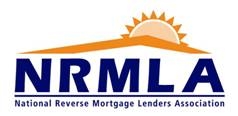Advertisement
NRMLA Pushes Congress on HECM Changes

In another leap forward for the Home Equity Conversion Mortgage (HECM) program, pending legislation would reduce financial risk for both potential borrowers and the federal government. The National Reverse Mortgage Lenders Association (NRMLA) has urged Congress to promptly provide the U.S. Department of Housing & Urban Development (HUD) with the authority it needs to make program changes that would match loans more appropriately with borrowers. HUD officials have asked for the authority to add consumer safeguards and make other changes to improve financial performance of the HECM program.
“The HUD proposal is a model for responsive and responsible governing,” said Peter Bell, president and CEO of NRMLA. “No government program works perfectly from the outset. HUD has carefully observed the results of the 780,000 HECM loans thus far and suggested creative improvements based on the actual experiences of borrowers.”
The House of Representatives passed the Reverse Mortgage Stabilization Act on June 12. Sponsored by Reps. Denny Heck (D-WA) and Michael Fitzpatrick (R-PA), the bill would “authorize the secretary of Housing and Urban Development to establish additional requirements to improve the fiscal safety and soundness of the home equity conversion mortgage insurance program.”
In March, Sens. Robert Menendez (D-NJ) and Kirsten Gillibrand (D-NY) introduced S.469 to assist the Secretary of HUD in stabilizing the HECM program. It has not yet been brought to a vote.
In addition, the Federal Housing Administration Solvency Act of 2013, introduced on July 15 by Sens. Tim Johnson (D-SD) and Mike Crapo (R-ID), includes language to “help stabilize FHA’s reverse mortgage program by giving the HUD secretary greater operational and regulatory flexibility, while preserving opportunities for public comment.”
NRMLA has urged the Senate to act swiftly in this time of need. Many aging Americans are still recovering financially from savings depreciations caused by the recession and many Americans approaching retirement are in desperately in need of additional assets.
Among the changes HUD is considering are:
►Financial assessments of HECM applicants to determine if they have the capability of meeting the responsibilities of the loan—including tax and insurance payment obligations;
►Mandating the set-aside of funds for tax and insurance payments to ensure borrowers can meet those obligations;
►Restrictions on the amount of proceeds that can be drawn initially, in order to prolong the useful life of the assets; and
►Including all borrower spouses on loans—regardless of the spouse’s age, as protection for either spouse against losing the home upon passing of the other.
“All of these changes consider both the best interests of borrowers and the ongoing health of the government insurance fund,” Bell said. “Historically, HUD has made smart changes to improve the HECM program, strengthen the insurance fund, and fulfill its mission of helping aging Americans maintain and remain in their homes. Aging in place is a cost effective choice for many households. HECM is a critical source for helping them do so.”
About the author





